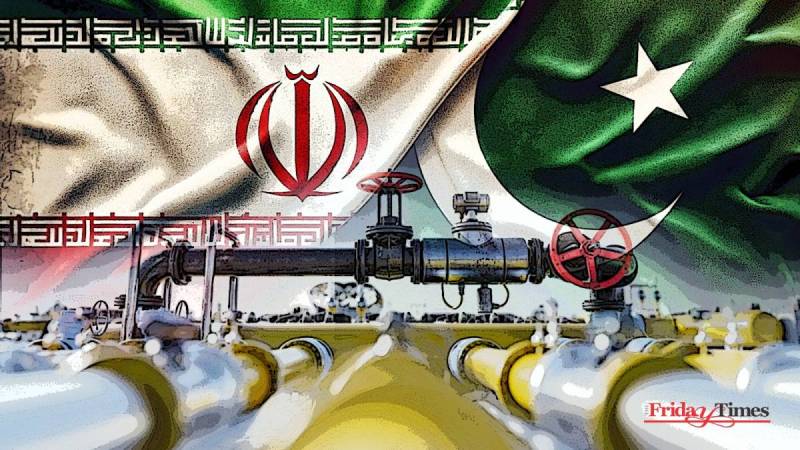
As Iranian President Dr Seyyed Ebrahim Raisi embarks on a visit to Pakistan, two issues will be front and centre of discussions in Islamabad: border security and a decade-old gas pipeline project that has been stalled due to US sanctions.
According to a report by the Inter Press Service News Agency, While the security issues are quite serious and directly impact both countries, with Tehran and Islamabad targetting sites across each other's borders earlier this year, what is of greater significance is the exchange of gas. Iran desperately needs the money from selling to Pakistan, while Islamabad needs Iranian gas to shore up its dwindling gas reserves to support its domestic, industrial and commercial sectors.
On May 24, 2009, the project was signed by President Asif Ali Zardari and then-Iranian President Mahmoud Ahmadinejad for the supply of gas ranging from 750 million ft3/d to around 1 billion ft3/d for 25 years from the South Pars gas field in Iran through Pakistan-Iran border, near Gwadar. The project would comprise a pipeline that was 1,150 km within Iran and 781 km within Pakistan, which was to be constructed by each country in their respective territories. Iran completed its part of the pipeline by 2012 and was ready to transport gas to Pakistan by 2015. However, Pakistan did not start work on its side until 2013.
However, the project on the Pakistani side came to a halt because of the threat of US sanctions. In recent months, however, there has been talk of resuming the project.
Recently, during a US congressional hearing, US Assistant Secretary of State for South and Central Asia Donald Lu — who gained infamy in Pakistan for his alleged role in passing on a veiled threat and orchestrating a "regime change" by orchestrating a vote of no-confidence against former prime minister Imran Khan — censured Pakistan for its plans to import gas from Iran, warning that pursuit of such plans would expose Pakistan to US sanctions.
Experts noted that US sanctions were in place before the agreement for the project, but political expediency trumped any effort to build safeguards. Others argue that unilateral US sanctions hold no moral authority.
Pakistan realises it needs cheap gas from Iran to sustain itself unless other sources become available. For this reason, it will seek some concessions from the US through a sanctions waiver on the pipeline, but it would have to offer the US something in return.
Even if Pakistan secures a waiver from the US, it would be hard-pressed to find financing for such a project.

